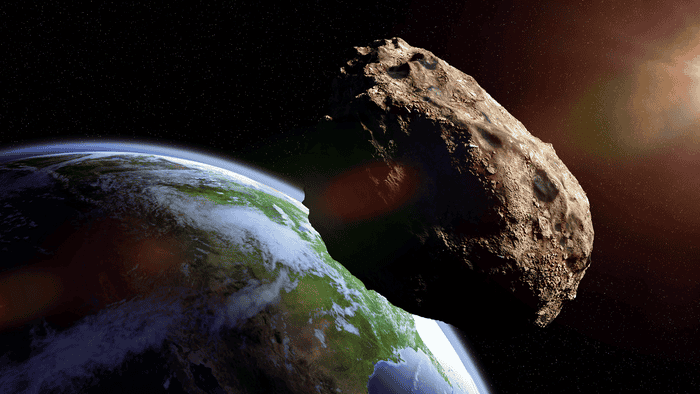
Late next month a large asteroid is set to buzz past Earth but lucky for you (also me, I guess) it's not set to hit the planet. If trajectories do change between then and now don't bother with some "But you told us Complex..." thing because nobody's going to be worried at that point.
According to CNN, the asteroid is set to be somewhere between 1.1 and 2.5 miles wide, and it moves at 19,461 miles per hour. It'll make it's way past Earth on April 29 at 4:56 a.m. ET. By "past Earth" we mean within 3.9 million miles.
So don't go and blow your money on a doomsday shelter.
OR2 is the biggest asteroid to pass by Earth over the next two months, but it's not quite the size of a 2.5 to 5-mile wide planetoid that came past our collective home in 2017. That one's still the record-holder, and it's set to come past again in 2057.
The incoming asteroid, which goes by the very catchy name of 52768 (1998 OR2), was first spotted in the summer of 1998. In that year NASA wrote that OR2 and another asteroid "show no signs of coming dangerously close to Earth within at least the next several decades."
Not a big concern.
"Both are classified as 'potentially hazardous objects' because they pass periodically near Earth's orbit," NASA added.
Slightly more of a concern.
At this time (meaning 2020) this asteroid is not listed on that organization's Earth Impact Monitoring page, which tracks objects most likely to hit Earth. Worry yourself with that list here if you want.
On Monday, NASA alerted the public of an(other) nearly 150-foot wide asteroid that was set to intersect Earth's orbit on Tuesday morning. That has since passed.
All this means that asteroid collision doesn't appear to be imminent, but NASA Administrator Jim Bridenstine has warned that it will happen someday.
“This is not about Hollywood, it’s not about the movies,” Bridenstine said, according to The Independent. “This is ultimately about protecting the only planet we know, right now, to host life."
